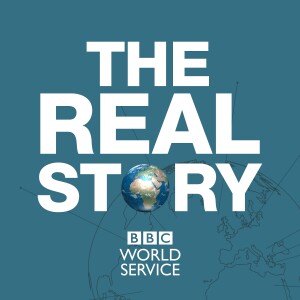
This week the tech giant Google announced it would not provide some of its services to the Chinese company, Huawei, the second biggest mobile handset maker in the world. The Trump administration alleged that Huawei might spy on America and its allies on behalf of the Chinese state, a claim rejected by the company. It said it was a victim of the trade war between Washington and Beijing, and its technology was strong enough to withstand American pressure and would, in fact, become the most advanced in the world within years. With China’s companies becoming global players in areas like mobile infrastructure, artificial intelligence, and surveillance, it looks set to pose a serious challenge to US dominance in technology. So, does China have the necessary expertise and investment backing to make the transition? And how much of that transformation will be affected by China's approach to governance, privacy, and human rights? Ritula Shah is joined by a panel of experts to discuss what a technology cold war will mean for the two technology superpowers, their allies and us, the consumers.
view more
More Episodes
Mercenaries: Guns for Hire
 2016-10-07
2016-10-07
 2016-10-07
2016-10-07
Challenging America's Two Party System
 2016-09-30
2016-09-30
 2016-09-30
2016-09-30
Kashmir in Crisis
 2016-09-23
2016-09-23
 2016-09-23
2016-09-23
Driving into the Future
 2016-09-16
2016-09-16
 2016-09-16
2016-09-16
Aleppo: Syria’s Stalingrad?
 2016-09-09
2016-09-09
 2016-09-09
2016-09-09
The End of Cash?
 2016-09-02
2016-09-02
 2016-09-02
2016-09-02
What is the Cost of Preserving the Past?
 2016-08-26
2016-08-26
 2016-08-26
2016-08-26
Is it time to Abolish India’s Caste System?
 2016-08-12
2016-08-12
 2016-08-12
2016-08-12
Zimbabwe after Mugabe
 2016-08-05
2016-08-05
 2016-08-05
2016-08-05
Turkey’s Failed Coup: What Next?
 2016-07-22
2016-07-22
 2016-07-22
2016-07-22
Bangladesh: Extremism on the Rise
 2016-07-15
2016-07-15
 2016-07-15
2016-07-15
Power to the People?
 2016-07-08
2016-07-08
 2016-07-08
2016-07-08
Don’t Be Evil: Technology and Power
 2016-07-01
2016-07-01
 2016-07-01
2016-07-01
Does the EU Have a Future?
 2016-06-24
2016-06-24
 2016-06-24
2016-06-24
The Shameful Game: Understanding Hooliganism
 2016-06-17
2016-06-17
 2016-06-17
2016-06-17
America’s Global Challenge
 2016-06-10
2016-06-10
 2016-06-10
2016-06-10
Cyberwarfare: The Digital Battlefield
 2016-06-03
2016-06-03
 2016-06-03
2016-06-03
Venezuela on the Brink
 2016-05-27
2016-05-27
 2016-05-27
2016-05-27
012345678910111213141516171819
Create your
podcast in
minutes
- Full-featured podcast site
- Unlimited storage and bandwidth
- Comprehensive podcast stats
- Distribute to Apple Podcasts, Spotify, and more
- Make money with your podcast
It is Free
- Privacy Policy
- Cookie Policy
- Terms of Use
- Consent Preferences
- Copyright © 2015-2024 Podbean.com



